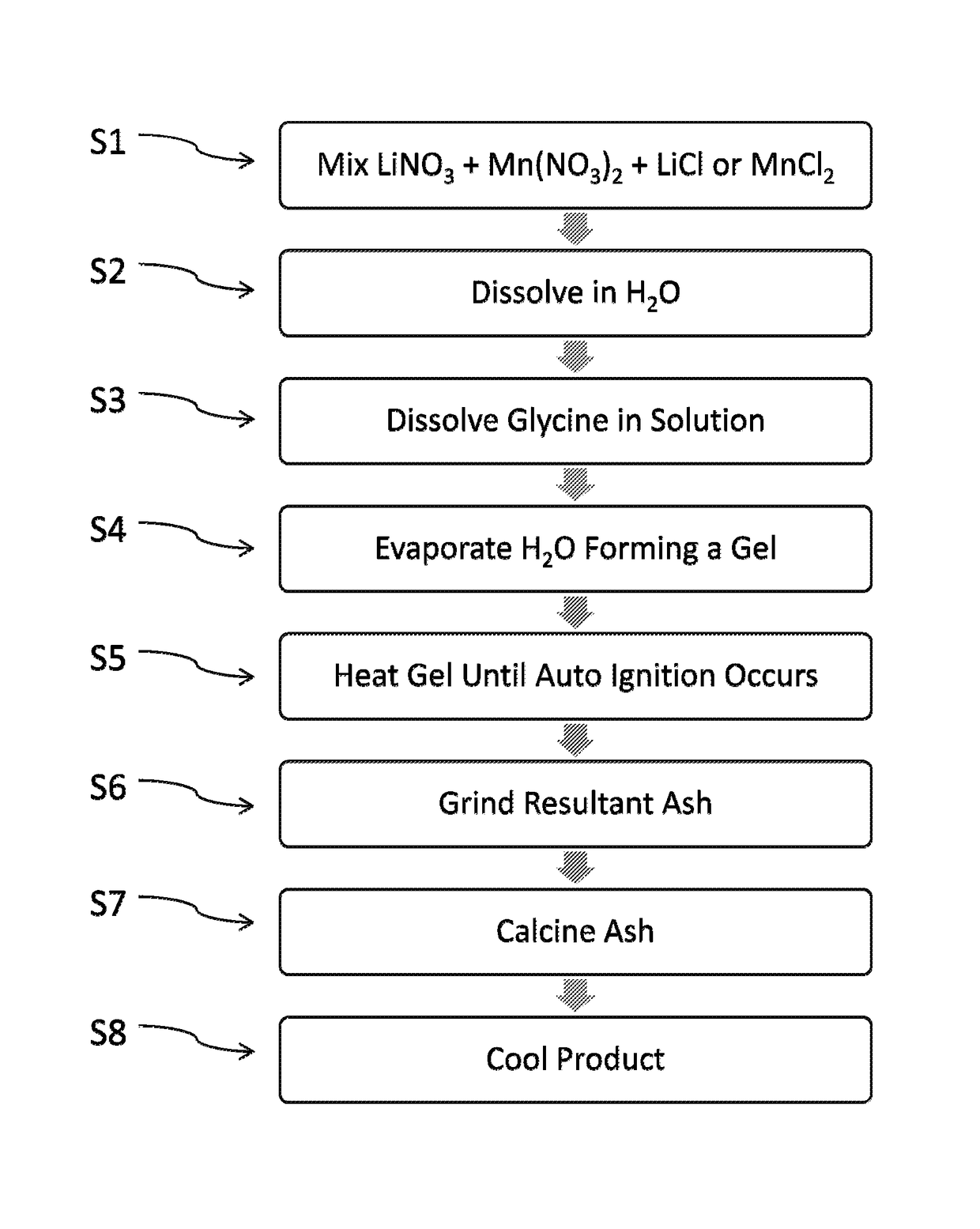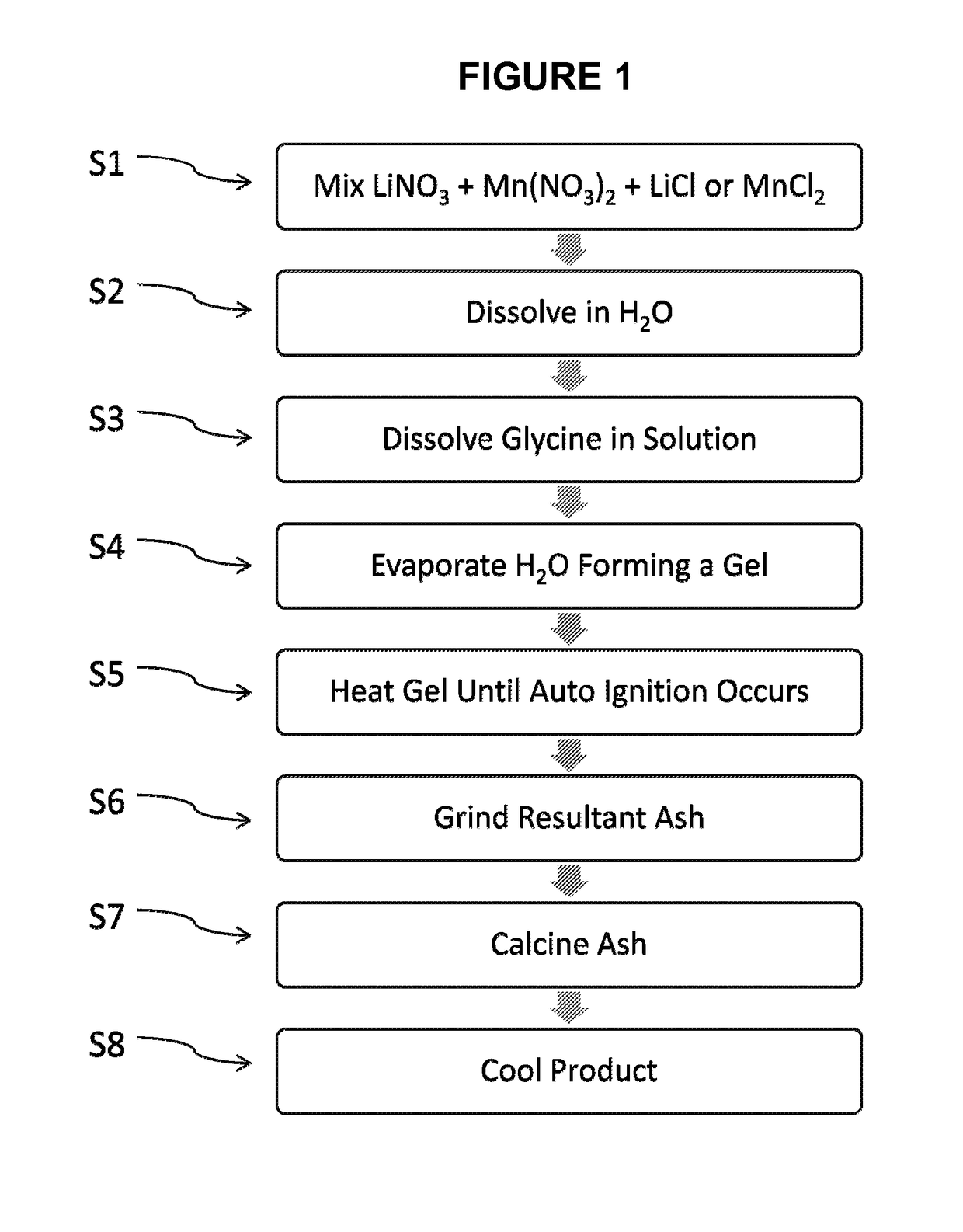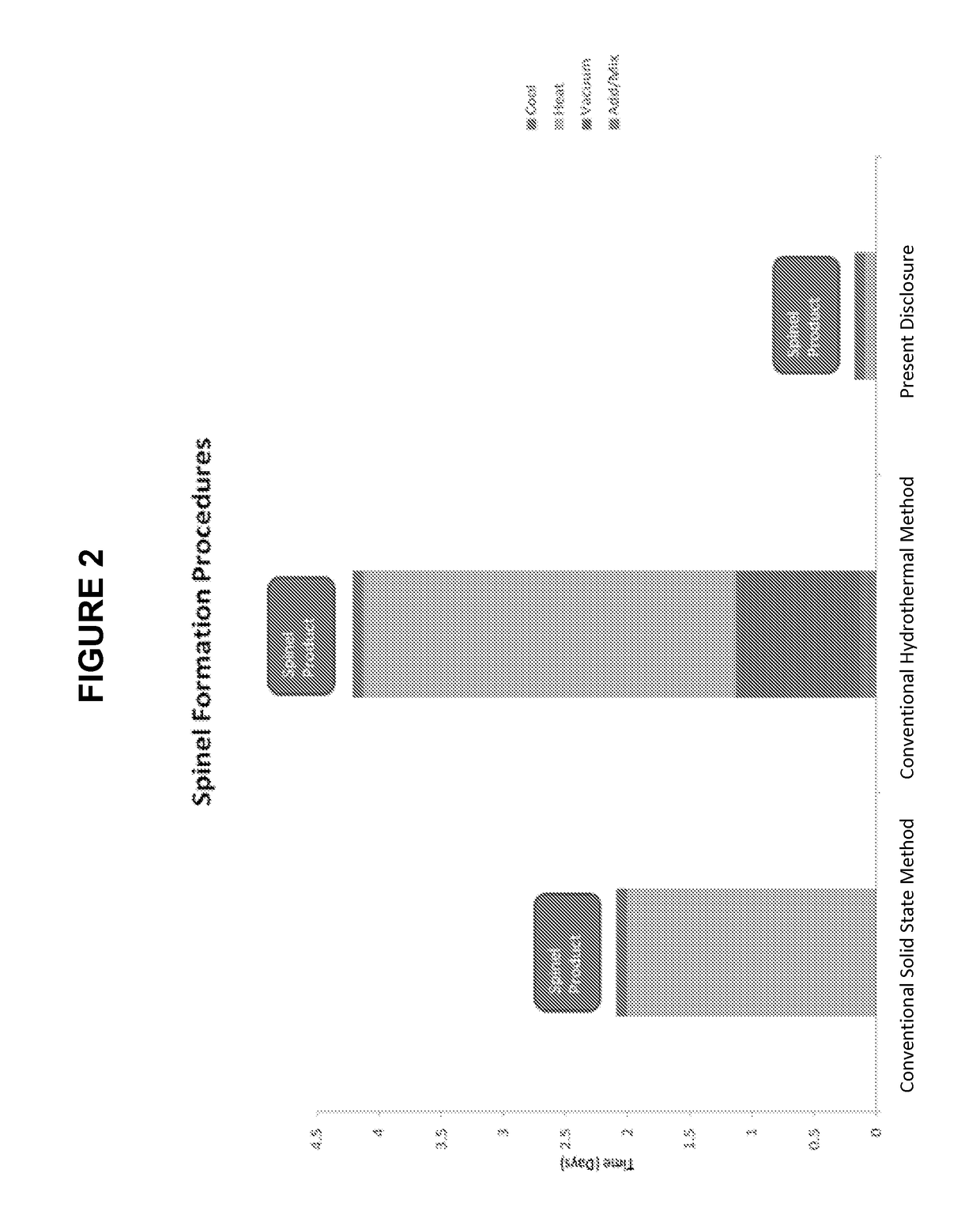LixMn2O4-y(C1z) spinal cathode material, method of preparing the same, and rechargeable lithium and li-ion electrochemical systems containing the same
a technology of spinal cathode material and lixmn2o4-y(c1z) is applied in the field of electrochemical power sources, which can solve the problems of limiting the practical number of cycles that may be used, capacity fading is a major problem, and the effect of improving performan
- Summary
- Abstract
- Description
- Claims
- Application Information
AI Technical Summary
Benefits of technology
Problems solved by technology
Method used
Image
Examples
Embodiment Construction
[0041]FIG. 1 is a flowchart illustrating process steps in an exemplary embodiment of the present disclosure. More specifically, FIG. 1 shows exemplary steps according to the present disclosure for the preparation of LixMn2O4-y(Clz) spinel material via a method comprising an initial nitrate glycine flame process followed by a calcining reaction. In step S1, a chlorine-containing salt in a solid state is added to manganese nitrate in a solid state and lithium nitrate in a solid state. The stoichiometric ratio of lithium to manganese to chlorine (Li:Mn:Cl) in the mixture of starting materials ranges from 0.45 to 0.6:1.0:0.005 to 0.35, from 0.45 to 0.6:1.0:0.015 to 0.2, or 0.45 to 0.6:1.0:0.03. to 0.15. Suitable chlorine-containing salts include, but are not limited to, lithium chloride and manganese chloride.
[0042]In Step S2, the mixture is then dissolved in distilled or deionized water. Alternatively, the chlorine-containing salt, manganese nitrate, and lithium nitrate may be each dis...
PUM
| Property | Measurement | Unit |
|---|---|---|
| temperature | aaaaa | aaaaa |
| particle size | aaaaa | aaaaa |
| particle size | aaaaa | aaaaa |
Abstract
Description
Claims
Application Information
 Login to View More
Login to View More - R&D
- Intellectual Property
- Life Sciences
- Materials
- Tech Scout
- Unparalleled Data Quality
- Higher Quality Content
- 60% Fewer Hallucinations
Browse by: Latest US Patents, China's latest patents, Technical Efficacy Thesaurus, Application Domain, Technology Topic, Popular Technical Reports.
© 2025 PatSnap. All rights reserved.Legal|Privacy policy|Modern Slavery Act Transparency Statement|Sitemap|About US| Contact US: help@patsnap.com



